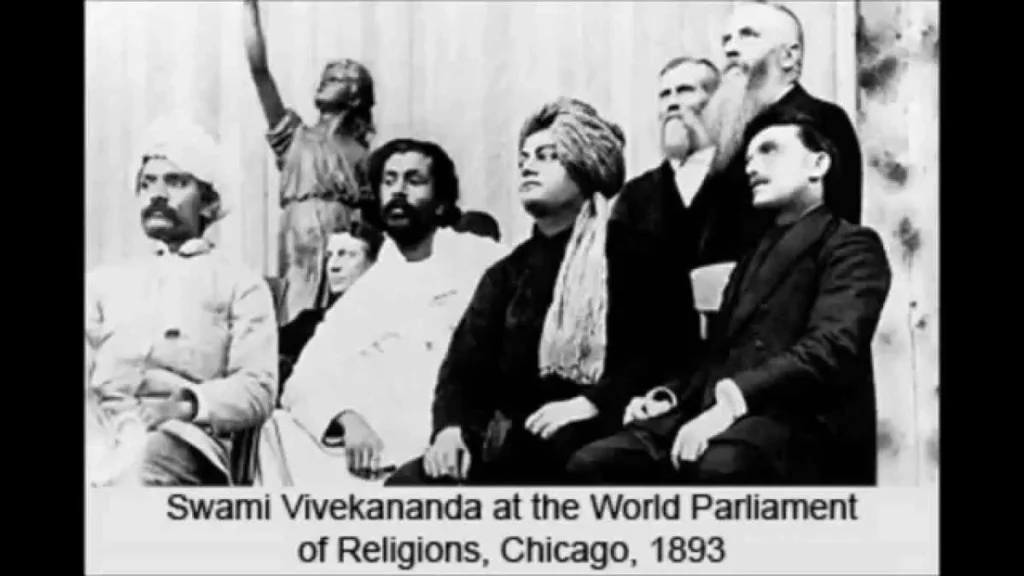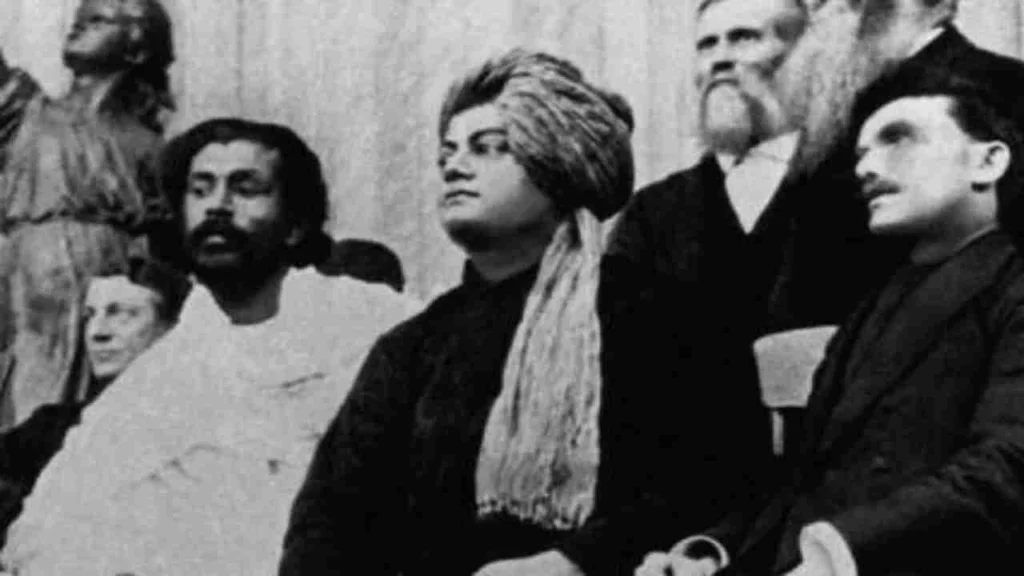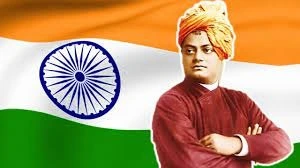
Swami Vivekananda, a name that imprint across time, is renowned for his groundbreaking address to the 1893 World’s Parliament of Religions in the United States. Born as Narendranath Dutta in 1863, he emerged as a prominent figure in the realms of spirituality and philosophical thought. He was not only the chief disciple of the 19th-century mystic Ramakrishna but also the visionary behind the Ramakrishna Mission. Swami Vivekananda played a pivotal role in introducing Vedanta and Yoga to the Western world, significantly elevating the global profile of Hinduism.
Swami Vivekananda : The Iconic Chicago Speech

On September 11, 1893, Swami Vivekananda delivered a speech that etched his name in the annals of history. It was a momentous occasion at the first World’s Parliament of Religions, held on the site of the present-day Art Institute in Chicago. His opening words, “Sisters and Brothers of America,” reverberated with warmth and gratitude, setting the stage for a message that transcended borders and religions.
Embracing Tolerance and Universal Acceptance
In his address, Swami Vivekananda expressed gratitude on behalf of the most ancient order of monks, the mother of religions, and the millions of Hindu people from diverse backgrounds. He extolled the virtues of tolerance and universal acceptance, emphasizing that his religion not only preached universal toleration but also embraced all religions as true. He took pride in belonging to a nation that had historically provided refuge to the persecuted and refugees of all faiths and nations.
A Vision for a Harmonious World
Swami Vivekananda’s speech was not just a historical moment; it was a profound exposition of wisdom that remains relevant today. He outlined a vision for a harmonious world, advocating for principles fundamental to peace and understanding. His message encompassed patriotism, love for all religions, analytical thinking about religious matters, and the integration of science and spirituality.

Understanding Roots and Overcoming Challenges
Swami Vivekananda also stressed the importance of understanding the roots of Hinduism, the significance of rituals, and the ultimate goal of human progress. He acknowledged the challenges faced by India and the need for introspection and reform.
A Call for Unity and the End of Fanaticism
Perhaps the most powerful message of his speech was his fervent call to end sectarianism, bigotry, and fanaticism that had plagued humanity for too long. He hoped that the assembly in Chicago would mark the beginning of the end for these divisive forces, ushering in an era of tolerance, unity, and compassion.
Swami Vivekananda’s words continue to inspire millions worldwide. His iconic Chicago speech not only introduced Hinduism to the world but also left an indelible mark on the collective consciousness. It serves as a timeless reminder that, in a world often divided by differences, the pursuit of harmony and unity is a noble endeavor that transcends time and place.

